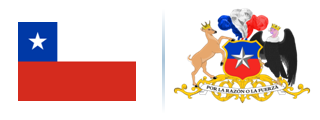Last Update: September 2025


| International Covenant on Economic, Social and Cultural Rights | International Convention on the Elimination of all Forms of Racism | Convention on the Rights of Persons with Disabilities | Convention on the Elimination of all Forms of Discrimination against Women | Convention on the Rights of the Child | International Convention on the Protection of the Rights of All Migrant Workers and Members of their Families | Constituent Agreement of the Development Fund for Indigenous Peoples in Latin America and the Caribbean |
| 10 February 1972 | 20 October 1971 | 29 July 2008 | 7 December 1989 | 13 August 1990 | 21 March 2005 | 31 October 1995 |
| View details | View details | View details | View details | View details | View details | View details |
Year of Latest Observed Constitution |
Social Housing |
Work and Social Security |
Public Health |
Public Education |
Social Development |
Children and Adolescents |
Youth/Young Adults |
Women |
Older Persons |
Persons with Disabilities |
Afrodecendants and Indigenous Peoples |
Migrants |
| 1980 | ||||||||||||
| View details | View details | View details | View details | View details | View details | View details | View details | View details | View details | View details | View details |
Children and Adolescents |
Youth/Young Adults |
Older Persons |
Women |
Peoples with Disabilites |
Afrodescendants and Indigenous Peoples |
Migrants |
Public Education |
Work and Social Security |
Social Housing |
Public Health |
Social Development |
|
| Legal Instrument | Ley de Menores | Ley núm. 19042 | LEY NUM. 19.828 | Ley contra la discriminación a la mujer | Ley sobre Igualdad de Oportunidades e Inclusión Social de Personas con Discapacidad | Ley 19253 - Normas sobre proteccion, fomento y desarrollo de los indigenas, y crea la corporacion nacional de desarrollo indigena | Decreto de Ley Nº 597: 'Nuevo Reglamento de Extranjería' (1984) | Ley General de Educación | Ley General de Seguridad Social | Ley General de Urbanismo y Construcciones | Ley General de Salud | n.d. |
| Law | Law | Law | Law | Law | Law | Law | Law | Law | Law | Law |
| Country | Chile |
| Main authority | Comité Interministerial de Desarrollo Social y Familia |
| Year of creation | 2011 |
| Coordinating authority | Ministro(a) de Desarrollo Social |
| Members | a) El Ministro de Desarrollo Social y Familia, quien lo presidirá.
b) El Ministro de Hacienda. c) El Ministro de la Secretaría General de la Presidencia. d) El Ministro de Educación. e) El Ministro de Salud. f) El Ministro de Vivienda y Urbanismo. g) El Ministro del Trabajo y Previsión Social. h) La Ministra de la Mujer y la Equidad de Género. i) El Ministro o Ministra de Ciencia, Tecnología, Conocimiento e Innovación |
| Country | Chile |
| Main authority | Ministry of Social Development and Family |
| Year of creation | 2019 |
| Mission | Contribuir en el diseño y aplicación de políticas, planes y programas en materia de desarrollo social, especialmente aquellas destinadas a erradicar la pobreza y brindar protección social a las personas o grupos vulnerables, promoviendo la movilidad e integración social. Asimismo, deberá velar por la coordinación, consistencia y coherencia de las políticas, planes y programas en materia de desarrollo social, a nivel nacional y regional y evaluar los estudios de preinversión de los proyectos de inversión que solicitan financiamiento del Estado para determinar su rentabilidad social de manera que respondan a las estrategias y políticas de crecimiento y desarrollo económico y social que se determinen para el país. |
| Incumbent | Javiera Toro (2023) |
| Population segment | Children and Adolescents |
Youth/Young Adults |
Older Persons |
Persons with Disabilities |
Women |
Migrants |
| Main protection mechanism | Consejo Nacional de la Infancia | Instituto Nacional de la Juventud (INJUV) | Servicio Nacional del Adulto Mayor | Servicio Nacional de la Discapacidad (SENADIS) | Ministerio de la Mujer y la Equidad de Género | Departamento de Extranjería y Migración |
| Legal Instrument | Decreto Ley 2.465 Ministerio de Justicia. Crea el Servicio Nacional de Menores (SENAME) Ley 20.032 Establece Sistema de Atención a la Niñez y Adolescencia | Ley núm. 19042 | Ley Num. 19.828, creación del SENAMA | Ley 20.422 que establece normas sobre igualdad de oportunidades e inclusión social de personas con discapacidad | Decreto de Ley Nº 597: 'Nuevo Reglamento de Extranjería' (1984) |
|
Technical-operational dimension | |||||||
| Unique Registry of Participants | Sistema Integrado de Administración Financiera /b | Sectoral Plan for Social Development | Transparence - system for accessing public information from the State | Integrated Social Information System |
Evaluation mechanisms for social programs |
|||
General |
Sectorial |
General |
Sectorial |
|||||
| Ministerio de Desarrollo Social y Familia | ||||||||